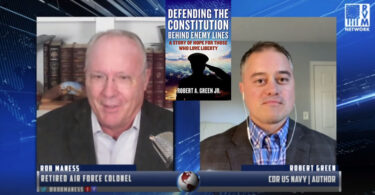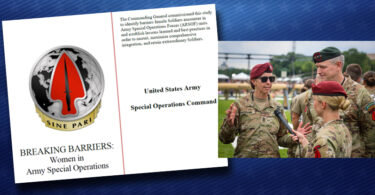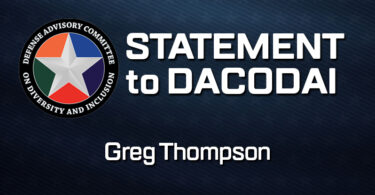By Tony Lentini, ’71
Military.com recently carried a story on a West Point cadet facing charges for sexual harassment and sexual assault. The article named names, not just of this one cadet, but also of another cadet charged with sexual misconduct, an officer faculty member facing conduct-related charges and the garrison commander who was acquitted of impaired driving charges.
Yet, after then-Superintendent Robert S. Caslen promised an investigation into why West Point permitted insubordinate communist cadet Spenser Rapone to graduate in 2016, the Army refused to release its findings on the spurious grounds of protecting Rapone’s privacy. This, despite the cadet’s public flouting of his Marxist political sympathies.
Moreover, the promised but undelivered investigation was to be not of Rapone himself but of Caslen’s leadership or lack thereof in allowing an avowed communist to graduate. (Caslen subsequently resigned from his post-West-Point civilian job as president of the University of South Carolina for allegedly plagiarizing parts of a speech.)
In another case, the fate of several cadets who overdosed on cocaine laced with fentanyl on Spring Break two years ago has never been publicly released, again on privacy grounds.
I have an outstanding Freedom of Information Act (FOIA) request to determine their final disposition that has been pending for over a year now, despite federal law requiring a response within 20 working days.
West Point’s public affairs officer cited privacy laws as the reason for the Academy’s stonewalling, even though I specifically did not ask for their names, only their punishment. But their names should be released, as well as their fate, since drug abuse is a serious offense under the Uniform Code of Military Justice and the cadets’ actions publicly discredited the United States Military Academy.
Something rotten is going on at West Point and within our military. Why are some names released while others are not? Why are sexual misconduct allegations and related court filings publicly disseminated while cadet drug abuse and West Point administrative failures are covered up?
My own FOIA request is now languishing in the “Initial Denial Authority” office of the Secretary of the Army at Ft. Belvoir, Virginia. Repeated calls and emails to expedite the release of information as to the cocaine-fentanyl cadets’ final disposition have gone unanswered.
A classmate’s five-month-old FOIA request to obtain West Point documents related to the Superintendent’s stated intention to make the Cadet Honor Code “more aspirational” was summarily dismissed by that same office for clearly bogus reasons: 1) That the Academy’s FOIA office had supplied the requested materials (they had not, providing only non-germane items); and 2) That a document search had uncovered no such documents. By “completely bogus,” I mean that they lied.
West Point is a federally funded institution. The Academy, and the military in general, are subject to federal laws, just as the rest of us are. In fact, even more so, because the U.S. military traditionally and by law is subject to civilian control.
So, why are they permitted to pick and choose which laws to obey and which to willfully ignore?
Why are they permitted to ignore legitimate taxpayer requests for information?
Why the disparity between releasing names in sexual assault cases but not in drug cases and administrative failures?
What is West Point covering up and why?
When and how will these lawbreaking officials be held to account?
And when is this once proud and honorable institution finally going to come clean?
Tony Lentini is a 1971 West Point graduate and a founding board member of the MacArthur Society of West Point Graduates. He served five years in the Army, attaining the rank of captain, and then spent his civilian career in the energy industry, ultimately serving as vice president of public and international affairs for two independent oil and gas exploration and production companies.
First published on Real Clear Defense
From the Comments Section on the article:
“As a recently retired officer, I would be highly concerned to have a junior officer or enlisted with recent drug usage in my unit. Officers are supposed to lead with skill and integrity. My son is presently serving in a line regiment. As a father, I cannot imagine having him led by an individual(s) using drugs. That’s how people get killed. West Point was considered a top-tier school. Changing the Honor Code is unimaginable. Defining the Code as “aspirational” denigrates previous classes that followed the Code. It illustrates how far standards have fallen throughout the military. It is inexcusable that FOIA requests languish in the inbox of a paper pusher or that requests are denied because they might embarrass the military or its civilian leadership.”
Commie Lieutenant Spenser Rapone Shows the Radical-to-Academic Ratline Is Still in Operation
Open Letter to LTG Darryl Williams, 60th Superintendent of the United States Military Academy








Leave a Comment